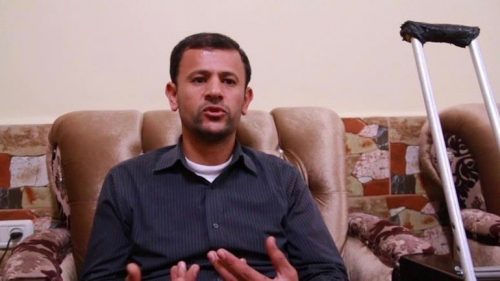
He reportedly faced the imminent threat of death after refusing any medical intervention, monitoring, or the provision of any intravenous fluids or supplements.Ību Hawash’s case brings into sharp focus Israel’s widespread and unlawful policy of incarcerating Palestinians under administrative detention provisions. This practice, of detention without charge, like many other castigatory Israeli laws in force originate from the British Defence ( Emergency) Regulations of 1945 introduced by the Palestine Government under the British Mandate (c.1919-1948) when the army ruled the country under a civil administration.

Hawash’s strike of over four months in duration, is the longest since the record breaking 266-day (eight months) long hunger strike by former Palestinian detainee Samer Issawi in 2013. The voluntary starvation has left Abu Hawash’s health in a critical condition. Hawash has previously spent eight years in Israeli prisons, with more than half of that period spent in administrative detention.

Hawash started his hunger strike in early August 2021. The strike came to an end on January 4, 2022, as Israel finally agreed not to renew his current six-month detention order, which will come to an end on February 26, 2022. Hawash is just one of thousands have been held in this way, although in recent years the Israeli Prison Service has refused to provide information on the numbers detained. Israeli detention conditions, even for children, have been described as ‘ inhumane,’ by aid organisations. In October 2021, a statement by UN experts condemned the imprisonment of approximately 500 Palestinians by these means, including six children and two women. These people, the UN stated, should be ‘released or charged,’ and Israel should desist with this illegal method of detention.

Last week, 40-year-old father of five Hisham Abu Hawash from Dura, Hebron ended his hunger strike which lasted 141 days, protesting his illegal administrative detention by Israel. Palestinian Hawash has been in Israeli custody since October 27, 2020, when he was put under a six-month administrative detention order, which has been renewed twice since then, with no reason for its initial issuance or renewal ever being given.


 0 kommentar(er)
0 kommentar(er)
